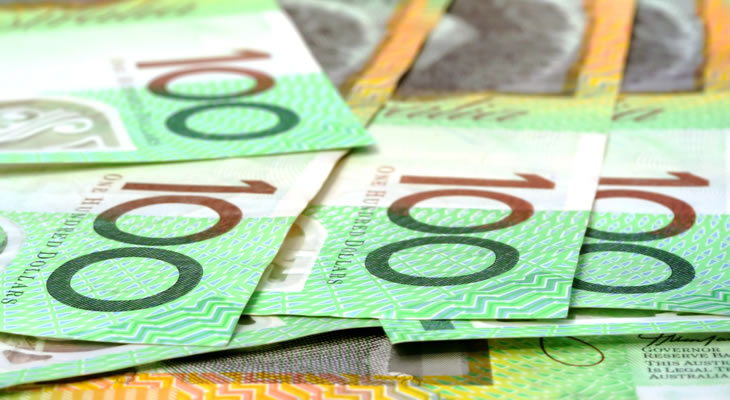Pound to Australian Dollar Exchange Rate Tumbles as Australian Dollar Enjoys Rebound
While investors remain anxious that the Reserve Bank of Australia (RBA) could cut Australian interest rates over the coming year, the Pound Sterling to Australian Dollar (GBP/AUD) exchange rate slumped when markets opened today as investors reacted to Australian political news.
Following last week’s second consecutive week of losses, which saw GBP/AUD slide from 1.8567 to 1.8522, the pair has already shed over a cent since markets opened this morning.
At the time of writing, GBP/AUD trended closely to a low of 1.8375, which was the worst level for the pair since May.
The primary cause for the pair’s losses was a surprisingly comfortable win for Australia’s ruling coalition government. It bolstered hopes for economic consistency in the nation and supported the Australian Dollar (AUD).
However, the Pound (GBP) has been unable to hold its ground either, as Brexit concerns continue to keep pressure on the British currency.
Pound (GBP) Exchange Rates Reeling ahead of Upcoming EU Elections
Last week, the Pound saw broad losses across the board, falling even against the highly unappealing Australian Dollar in reaction to news that cross-party Brexit negotiations had failed.
The Pound’s recent strength has been correlated to the perceived chance of a Brexit solution being found and a worst-case scenario no-deal Brexit being avoided.
As Britain’s ruling Conservative Party and opposition Labour Party ended talks without a deal last week, and hopes of a softer Brexit have faded.
Instead, markets are concerned that almost two months of the six month Brexit delay have been seemingly wasted, and a no-deal Brexit is being perceived as a possibility again.
Pound traders are especially anxious ahead of this week’s EU elections, which polls predict will lead to a big win for Britain’s populist Brexit Party, and a big loss of support for the ruling Conservatives.
Australian Dollar (AUD) Enjoys Rebound on Political Consistency Hopes
One of the biggest causes of weakness in major currencies is economic and political uncertainty. As a result, elections and changes in ruling party often make currencies unappealing as nations shift gears.
Because of this, Australian Dollar investors were relieved by unexpected political consistency in Australia’s 2019 general election.
Australia’s opposition Labor Party was predicted to defeat the current Coalition government, but the Coalition won the election by a surprisingly comfortable amount.
This gave the Australian Dollar some fresh support, as investors became more optimistic that Australia’s economic policies would be consistent going forward.
However, analysts speculate that as the election was predicted to be close, and RBA interest rate cut bets persist, the Australian Dollar’s potential for gains is limited.
Pound to Australian Dollar (GBP/AUD) Exchange Rate Could Rebound on Trade Jitters
While Brexit uncertainties persist, the Pound to Australian Dollar (GBP/AUD) exchange rate could recover some of its losses if Australian Dollar bullishness fades.
Despite the political news, AUD investors remain anxious about the Reserve Bank of Australia’s (RBA) monetary policy outlook, as well as US-China trade developments.
Tuesday’s Asian session will see the publication of the RBA’s latest meeting minutes report, followed by a speech from RBA Governor Philip Lowe.
If the meeting minutes indicate any surprising details on the bank’s monetary policy plans or if Governor Lowe hints towards any himself, the Australian Dollar is likely to be impacted.
For example, if the bank is perceived as more likely to cut rates due to last week’s disappointing Australian job market data, the Australian Dollar will weaken.
The Australian Dollar will strengthen instead though if the bank hints that political consistency could bolster the Australian economic outlook.
Some UK data will be published this week, but the Pound is more likely to be driven by the EU elections taking place on Thursday.
Overall, the Pound to Australian Dollar (GBP/AUD) exchange rate outlook will be driven by RBA news and political developments over the coming sessions, as well as any surprising developments between the US and China.


Comments are closed.